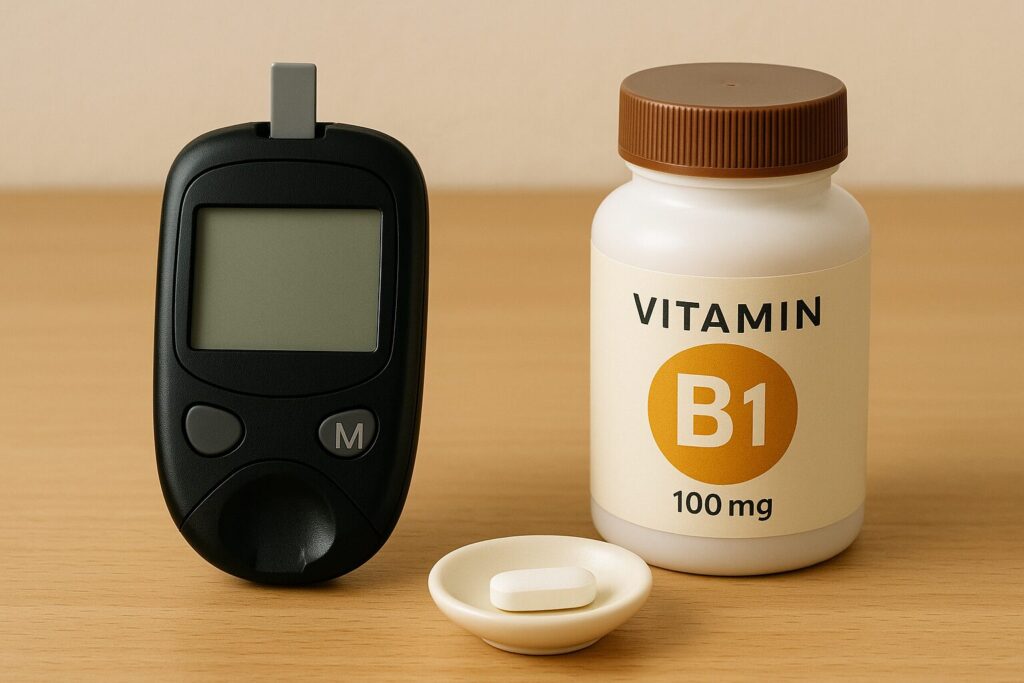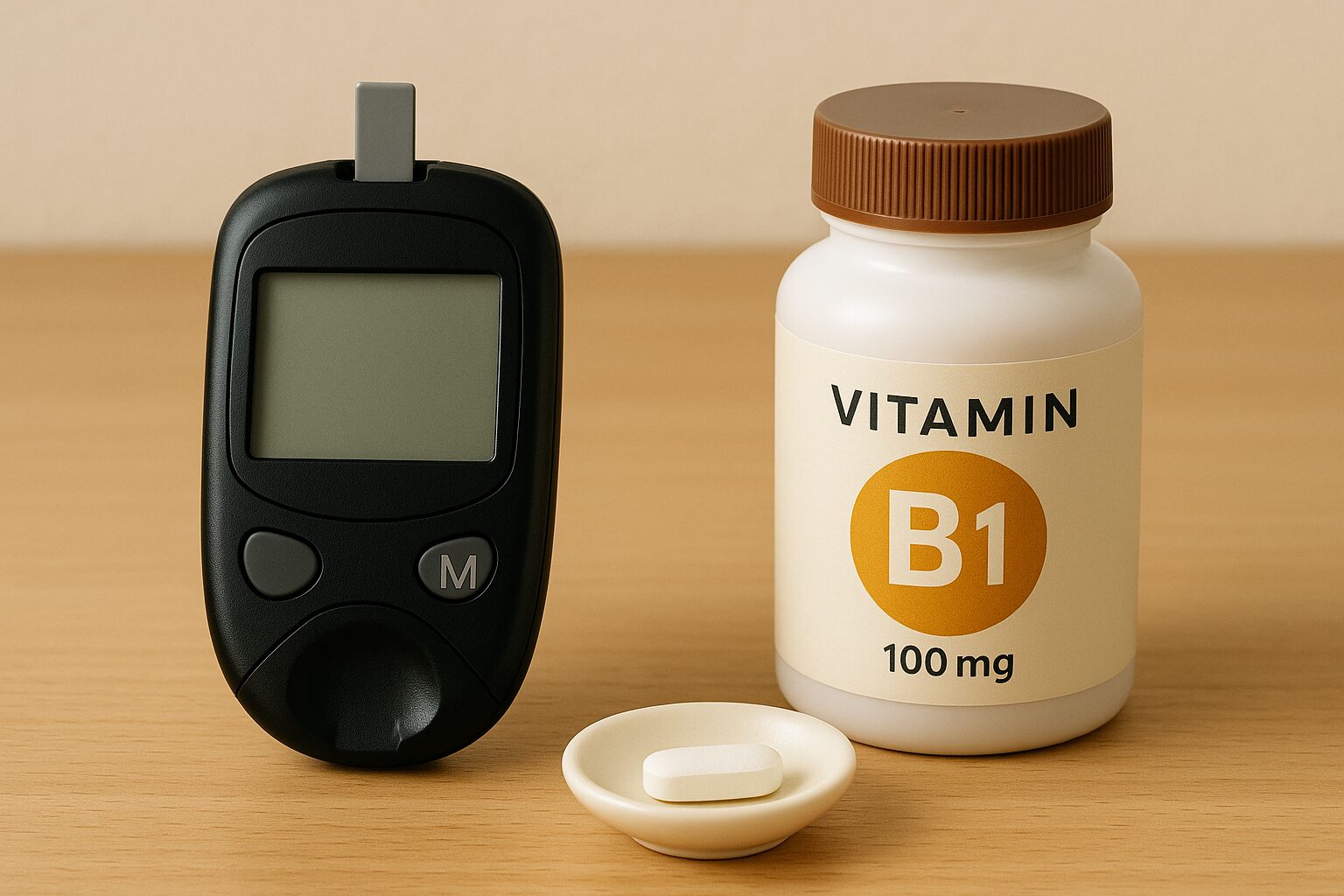Living with diabetes requires ongoing attention to diet, lifestyle, and nutrient intake. While most people focus on carbohydrates, sugar, and insulin, an often-overlooked nutrient is vitamin B1, also known as thiamine. This essential vitamin plays a crucial role in energy metabolism, nerve health, and the prevention of complications related to diabetes. Research suggests that people with diabetes may have lower levels of thiamine in their blood, making it even more important to pay attention to this nutrient.

1. Role of Vitamin B1 in Energy Metabolism
Thiamine is necessary for converting glucose into usable energy. For individuals with diabetes, where glucose management is central to daily life, ensuring an adequate intake of vitamin B1 may support more efficient metabolism. Without enough thiamine, the body struggles to use carbohydrates effectively, which can lead to fatigue and sluggishness. Many people with diabetes describe feeling unusually tired, and low thiamine levels may be one of the contributing factors.
2. Supporting Nerve Health and Preventing Neuropathy
One of the most common complications of diabetes is diabetic neuropathy, a condition that causes tingling, numbness, or pain in the hands and feet. Studies indicate that thiamine supports the nervous system by maintaining the health of nerve cells and improving communication between them. Some clinical research has shown that higher thiamine intake or supplementation may reduce early signs of nerve damage in people with diabetes. For patients who already experience mild neuropathy, adequate thiamine could provide protective benefits.
3. Protecting Blood Vessels and Reducing Complications
Diabetes can damage blood vessels over time, increasing the risk of cardiovascular problems, kidney disease, and eye complications. Thiamine has been linked to improved endothelial function, which means it helps protect the inner lining of blood vessels. Some studies suggest that sufficient thiamine may reduce the accumulation of harmful by-products of high blood sugar, lowering the risk of long-term complications. While thiamine is not a replacement for medication or blood sugar management, it can play a complementary role in supporting vascular health.
4. Dietary Sources of Vitamin B1
Thiamine is found in a variety of foods, making it possible to meet daily needs through a balanced diet. Good sources include:
- Whole grains such as brown rice, oats, and whole wheat bread
- Legumes like lentils, beans, and peas
- Nuts and seeds such as sunflower seeds and flaxseeds
- Lean meats, especially pork
- Fish like trout and tuna
Incorporating these foods into meals not only supports thiamine intake but also provides additional fiber and nutrients that are beneficial for people managing diabetes.
5. When Supplementation May Be Needed
Even with a balanced diet, some people with diabetes may still have lower blood thiamine levels due to increased urinary loss caused by high blood sugar. In such cases, supplementation may be considered. However, it is always best to consult a healthcare provider before starting any supplement, as the dosage and individual needs can vary. Thiamine supplements are generally safe, but professional guidance ensures the best results.
🙂
Vitamin B1 may not always be the first nutrient people think of when managing diabetes, but its role in energy metabolism, nerve protection, and blood vessel health makes it an important part of overall care. By including thiamine-rich foods in your diet and seeking professional advice when supplementation is needed, people with diabetes can take a proactive step toward better long-term health and reduced complications.
Sources
– American Diabetes Association: Nutrition and Diabetes Care
– National Institutes of Health (NIH): Thiamine Fact Sheet
– Diabetes UK: Managing Complications and Nerve Health
Disclaimer
This article is for informational purposes only and does not replace medical advice. Nutrient needs may differ depending on individual health conditions. People with diabetes should always consult their healthcare provider before making dietary or supplement changes.
